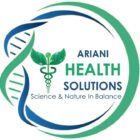Holistic, Integrative Approach to Cancer
Written by Dr Arien van der Merwe MBChB FRSPH MISMA NHA
Medical doctor and author who specialises in holistic, integrative medicine
In recent years oncology (the study and treatment protocols of cancer) has developed into various sub- specialities, becoming more and more intricate. A patient may need a surgical oncologist to remove a tumour, a radiation oncologist for radiation therapy and an internal medical oncologist to provide chemotherapy, hormone therapy and targeted cancer therapy (drugs that inhibit the spreading or metastasising of cancer). Some oncologists even specialise in treating only certain types of cancer, such as breast or pancreatic cancer. This increasing specialisation benefits patients in obtaining care from medical experts in their specific field, however, in the process, the specialist may tend to see only the tumour and not the patient. Holistic, integrative medicine considers the whole patient: body, mind and spirit. Its main aim is to enable those with cancer, to live active, vigorous lives, not laid low by the disease or the side effects of harsh conventional treatment protocols.
Cancer can be visualised as a weed. Modern Western oncology is focused on destroying the weed, while holistic, integrative medicine considers the soil the weed grows in, and on ensuring that this soil is as inhospitable as possible to the growth and spread of the weed, while supporting the rest of the garden, encouraging it towards optimal health.
Many cancer patients have been highly functional and in control of their lives. A cancer diagnosis robs them of this. Factors playing a causal role in the multifactorial development of cancer, among these, long term stress with trapped emotions, as well as the stress associated with the diagnosis and lifestyle adaptations, have to be addressed, before it becomes a vicious circle of exacerbating factors contributing to the downward spiralling disease process.
A cancer diagnosis takes away control and puts patients at the mercy of doctors. In my practice at the Healthy Living Space, we endeavour to guide patients to reclaiming autonomy over their own health, by teaching them practical tools and techniques to do, practice and participate in, so that those who are experiencing cancer, can be exposed to a buffet of mind-body options, supporting them to take their lives back into their own hands, to take self-responsibility for their own healing process. It is essential to implement measures to decrease ongoing fire of inflammation in the body (refer article on website ‘Inflammation: Friend or Foe’), which lies at the root of all chronic diseases, and to support the body\’s natural ability to recover from the imbalances caused by cancer. I also encourage patients to reconsider their life priorities, then teach them to manage their stress and, most importantly, supporting them to never lose hope. After all, the body’s natural state is health and wholeness!
Healthy eating to manage cancer and support the body
Overweight and obesity increase the risk of a number of different types of cancer, such as colorectal cancer. With hormonally driven cancers (such as breast cancer) obese patients have a worse prognosis than those with a healthy body weight. Therefore, it is important for patients to improve their nutritional status and decrease their weight (especially fat weight). The best strategy is to eat a plant based diet aiming at a wide variety of the rainbow colours and different textures, of fruits and vegetables, of which a significant percentage should be raw or lightly cooked. Cruciferous vegetables such as broccoli, cauliflower and cabbage contain cancer preventing compounds (such as sulphoraphane, indoles and icocyanates) so potent that is actually being investigated as chemotherapy agents! Berries are rich in beneficial plant nutrients and powerful antioxidants that support the immune system and general health and wellbeing, while having a direct impact on restoring the normal communication between cells. A healthy eating plan, with emphasis on a palate pleasing variety of fruits and vegetables, whole grains, nuts, plant oils (e.g. coconut, macadamia, extra virgin olive and grapeseed oils) and cold water fish that provide omega-3 fatty acids (those who eat fish have a reduced risk of cancer) is the best nutritional strategy.
It is recommended that the intake of animal fats, red meat and dairy products are limited, to prevent cancer promoting inflammation in the body. Refined sugar and carbohydrates are best avoided in those experiencing cancer, because of their effect on increased insulin production and insulin like growth factors (refer article on insulin as common denominator in renegade inflammation), which promote inflammation and are also associated with cancerous cell division.
Organic fruits and vegetables are the best choices for cancer patients, not just because they\’re grown without pesticides and other agricultural chemicals, but because plants grown outdoors organically and naturally, have to protect themselves from other plants, predators (insects, birds and animals) and the midday sun. Organically grown plants do this by producing more intense protective chemicals, known as bioflavonoids, which make them even more intensely beneficial to us as human beings in need of plant protection.
I recommend seasoning food with ginger, garlic, onions, peppers, chillies, turmeric and cinnamon; drinking green tea, all of which have anti-inflammatory and antioxidant properties. If you drink alcohol, stick to red wine. Excessive alcohol consumption is a cancer risk. Men should limit themselves to a maximum of two drinks daily and women to a maximum of one. For women at risk of breast cancer, one drink a week is recommended.
| Dr Arien’s anti-inflammatory cocktail: steep together a pinch each of ginger (or ½ teaspoon chopped fresh ginger), cinnamon (or one cinnamon stick) and turmeric in hot water, adding a spoon full of honey – this mixture supports the immune system, provides antioxidant and anti-inflammatory plant chemicals, breaks down phlegm (thick mucous), reduces pain and fever, and act as natural antibiotics. |
